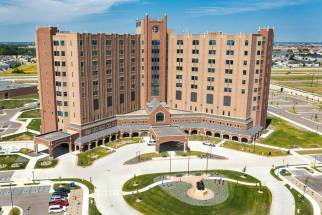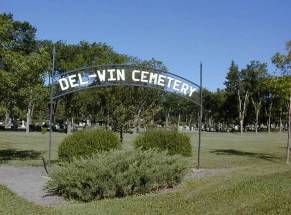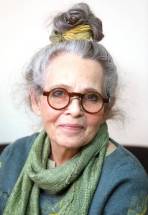Fall a harsh reminder we’re traversing a slippery slope
Read this article for free:
or
Already have an account? Log in here »
To continue reading, please subscribe:
Monthly Digital Subscription
$0 for the first 4 weeks*
- Enjoy unlimited reading on winnipegfreepress.com
- Read the E-Edition, our digital replica newspaper
- Access News Break, our award-winning app
- Play interactive puzzles
*No charge for 4 weeks then price increases to the regular rate of $19.00 plus GST every four weeks. Offer available to new and qualified returning subscribers only. Cancel any time.
Monthly Digital Subscription
$4.75/week*
- Enjoy unlimited reading on winnipegfreepress.com
- Read the E-Edition, our digital replica newspaper
- Access News Break, our award-winning app
- Play interactive puzzles
*Billed as $19 plus GST every four weeks. Cancel any time.
To continue reading, please subscribe:
Add Free Press access to your Brandon Sun subscription for only an additional
$1 for the first 4 weeks*
*Your next subscription payment will increase by $1.00 and you will be charged $16.99 plus GST for four weeks. After four weeks, your payment will increase to $23.99 plus GST every four weeks.
Read unlimited articles for free today:
or
Already have an account? Log in here »
Hey there, time traveller!
This article was published 09/03/2022 (1372 days ago), so information in it may no longer be current.
I fell down the stairs three weeks ago. About three steps from the landing, having climbed up those stairs to water flowers in a third-floor bedroom because my son and his husband had come to visit.
Two years without a visit from them, and then a February surprise, as they could both work online from my home. How can there not be flowers when such a visit, such a gift is given?
Lived lives
Winnipeg writer Deborah Schnitzer begins a new Free Press column exploring life lessons from women in their Third Act.
I fell down with hospitals overwhelmed and emergency rooms flooded, and I thought, in that instant — I am sure I thought this in that instant — Don’t Fall Down.
This is a mantra I share with my peers. Crones in the last full bloom of life, in what some have called the third act, and others, like Dorothy Parker, might name as “What fresh hell is this?”
Don’t Fall Down are the words we use as greeting and farewell, for we know we have moved to brittle, perhaps, unsteady, and we respect (though often bemoan) our bodies in the shape they’ve become: older, less agile, interestingly worn, headed along an inclined (decline?) plane some might call a slippery slope.
Falling down, hobbled with a badly twisted ankle, black and blue, I thought of my great good fortune in not having broken anything.
I also thought about my chances as an older woman within a culture hard-pressed to comprehend and honour my worth and wisdom. I thought about the solitary state of my widowhood, which, conjoined with my age, made me even more vulnerable. I thought about my heart and wondered what kind of resilience I might be able to bring to such a scenario.
I am lucky enough to have lived to 71 in good-enough condition. I am lucky enough to have shared vital relationships with my children, their partners and my young grandchildren; lucky and determined enough to value the wisdom we have grown in reciprocal relation; lucky, determined and hopeful enough to understand that my experience, the meanings I have discerned in my life, have value within my family and within the world.
I cherish whatever prospect and time frame may resonate still, having learned (and forgiving myself for often forgetting) that nothing is in my control, except the way I encounter the unknown and the uncertain.
I fell down the stairs and, as a wise friend suggested, it brought things up, took me from the abstract to the concrete in a hurry.
I am visibly connected to these understandings and the claims they make, even as I am visibly aware of how often elders can be devalued publicly, exchanged for what is considered shinier, more interesting, more fruitful.
As far as I am able, I will take care of myself, but I often think this desire more achievable if I didn’t have to worry about whether my fall — my sprain, my life — will be overlooked as if I were over some hill many mainstream cultures have determined as my last hurrah.
I have never even thought of these phrases — over the hill, last hurrah — as having much to do with my life’s progress, for I have measured my way as a human being from multiple points of view — child, daughter, sister, woman, wife, widow, baba, friend, student and teacher.
I have no final item in any bucket list, though perhaps a bucket can hold dreams of making my living by learning more, integrating more, giving and receiving more within community.
I fell down the stairs and, as a wise friend suggested, it brought things up, took me from the abstract to the concrete in a hurry.
My fall left me considering: What kind of world do we make if I am incidental and unseen? The same kind of world — I suspect — we make when we think of babies only as cute and/or toylike and teenagers only as forces to be managed and/or subdued. A world like that is brittle and unsteady, unanchored by the meanings old and new lives steadily reveal about fluency, worth and legibility.
Of course, I am talking about the different pathways, identities and perspectives that enrich and extend the worlds in which we live.
I cherish whatever prospect and time frame may resonate still, having learned (and forgiving myself for often forgetting) that nothing is in my control, except the way I encounter the unknown and the uncertain.
After the fall, I am left with an ankle that is fragile, bandaged but healing, requiring special attention, an ankle that may join those other places within my body that have daily conversations with arthritis. And, after the fall, I am left with an even deeper understanding of my elder rights and my unabated impulse to strengthen my claim as a visible, evolving being on the edge of discovery, always holding to the depth and dignity of my peers.
We are profoundly aware of our mortality: many have experienced illnesses that brought them frighteningly close to an ending; many have held the leave-taking of those they have loved dearly. Yet as mortals, we cannot imagine a time when we won’t be here, even as we imagine the times we won’t live to see. We live out this paradox and others as relevant.
When we say “Don’t Fall Down” in greeting and farewell, we say so with an understanding that how we are seen — in our maturity, with our losses, our limitations — does not often acknowledge our places of aliveness and the bright flames of our experience, realities that might be extinguished entirely if we cannot be received as worth, as legacy, as worth, perhaps as irreplaceable.
debbieschnitzer@mts.net









